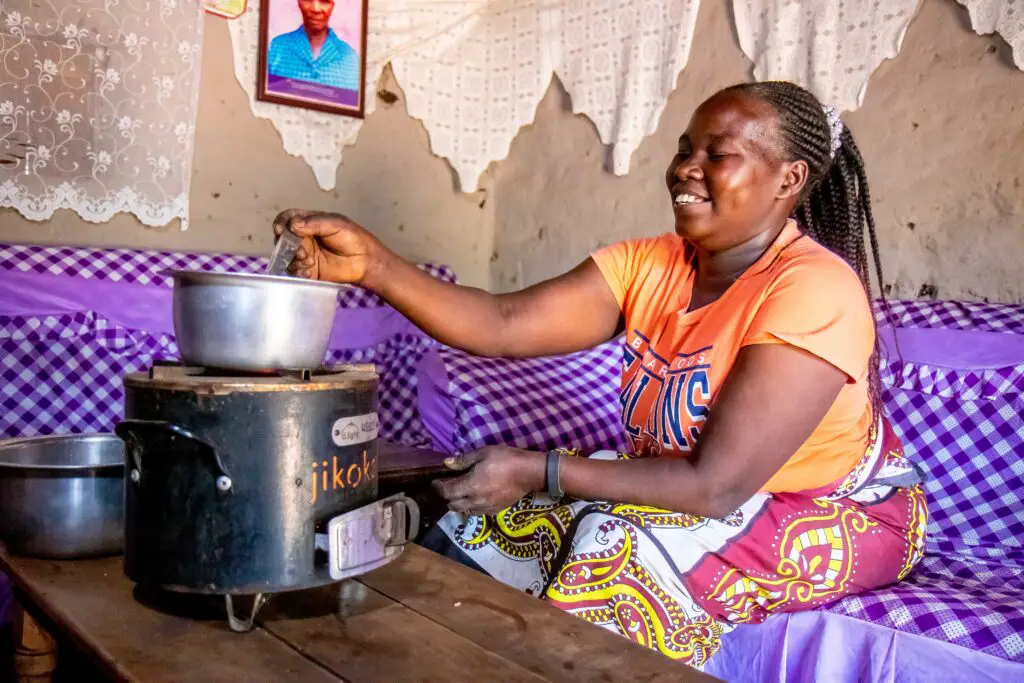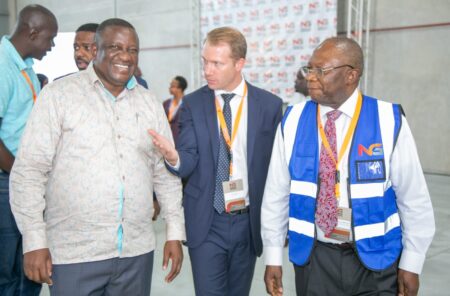- Global verification body Verra certifies d.light’s clean cookstove projects in Kenya, Uganda, and Nigeria.
- Initiative to distribute 600,000 clean cookstoves, which are now verified by leading certifiers as a trusted source of high-quality carbon credits.
- Launched in 2022, these projects have already positively impacted over one million lives and are on track to transform the lives of three million people by 2025.
d.light’s clean cookstove initiatives
In a landmark move that helps advance the journey towards sustainable development and environmental health in Africa, d.light, a firm that provides innovative solutions for low-income households, has achieved a milestone with its projects receiving certification from Verra as a trusted source of high-quality carbon credits.
This certification marks d.light’s clean cookstove initiatives in Kenya, Nigeria, and Uganda as crucial players in the voluntary carbon markets (VCMs), aiming to reduce carbon emissions, combat indoor air pollution, and curb deforestation.
Addressing environmental challenges, and earning carbon credits
The clean cookstove projects spearheaded by d.light are designed not only to mitigate environmental impact but also to improve the quality of life for millions of users in Africa. Launched in 2022, these projects have already positively impacted over one million lives and are on track to transform the lives of three million people by 2025.
The projects harness highly efficient biomass cookstoves, subsidized through the revenue generated from carbon credits, to provide a sustainable and healthier cooking alternative to traditional methods.
Karl Skare, d.light’s Chief Product and Strategy Officer, notes the broader benefits of these initiatives, stating, “With these projects, we’re not just addressing environmental concerns but also enhancing the quality of life for millions. Each project underscores d.light’s commitment to practical, innovative solutions that address both environmental and social challenges, as part of our mission to transform the lives of one billion people by 2030.”
Impact on global emissions and public health
Cooking emissions are a huge global concern, accounting for over two percent of total global greenhouse gas (GHG) emissions and up to 25 per cent of anthropogenic black carbon emissions. By reducing biomass usage by up to 70 per cent compared to conventional cooking methods, d.light’s energy-efficient cookstoves cut emissions of both carbon dioxide and black carbon significantly.
These reductions, estimated to reach up to 12 million tonnes, will be registered as carbon credits in the voluntary carbon market, contributing actively to climate change mitigation.
Beyond environmental impacts, clean cookstoves offer notable public health benefits. According to the World Health Organisation, smoke from traditional cooking stoves causes about 3.2 million premature deaths globally every year, with a big percentage of this loss of lives occurring in Africa.
For instance, in Uganda, less than one percent of the population has access to clean cooking facilities, making household air pollution one of the largest risk factors for death and disability.
Promoting sustainability and socio-economic development
Switching from traditional open fires to cleaner, more efficient cookstoves also significantly reduces deforestation and mitigates threats to wildlife and biodiversity caused by habitat loss. Skare explained the dual benefit of the projects, saying, “By subsidizing energy-efficient cookstove costs through carbon financing, d.light makes clean cooking accessible to more households, which in turn leads to healthier living conditions and conserves natural resources as well.”
d.light’s projects in Kenya, Nigeria, and Uganda illustrate how sustainable investments can yield multiple co-benefits. They align with global efforts to combat climate change while promoting socio-economic development.
These initiatives have been certified by both Gold Standard and Verra, the world’s leading certifiers of carbon credits, ensuring that organisations looking to offset their emissions can invest confidently in transformative initiatives that reduce harmful emissions, improve health and quality of life, and help conserve the environment.
As the world increasingly seeks solutions to mitigate climate change and enhance sustainable living, d.light’s certified projects stand as a bold example of innovation and impact, providing a model of how integrated approaches can address complex global challenges effectively. These projects are a testament to the potential of targeted, well-managed interventions to make a difference in the world’s most vulnerable communities, driving progress toward a healthier planet and society.
Read also: d.light and Chapel Hill Denham ink $7.4M deal for solar projects in Nigeria











